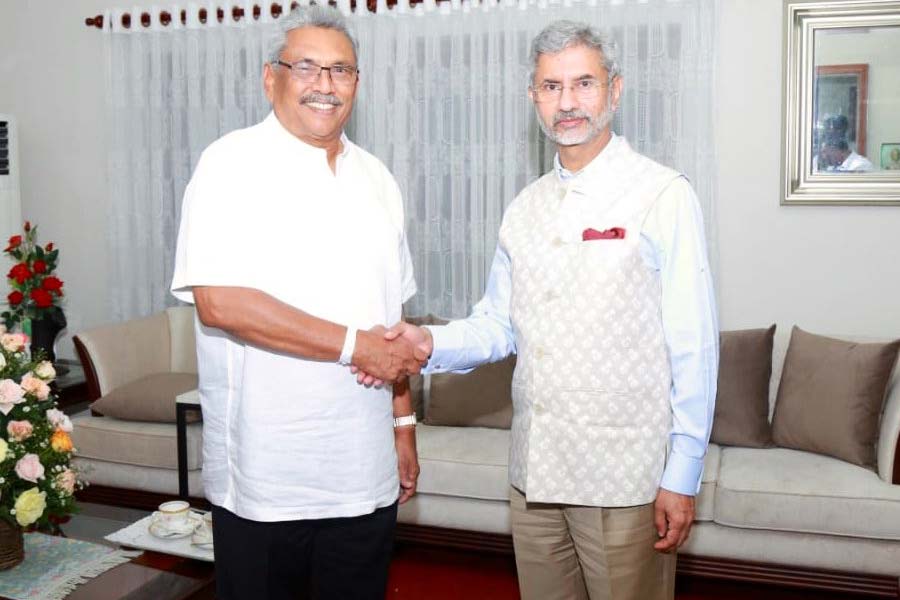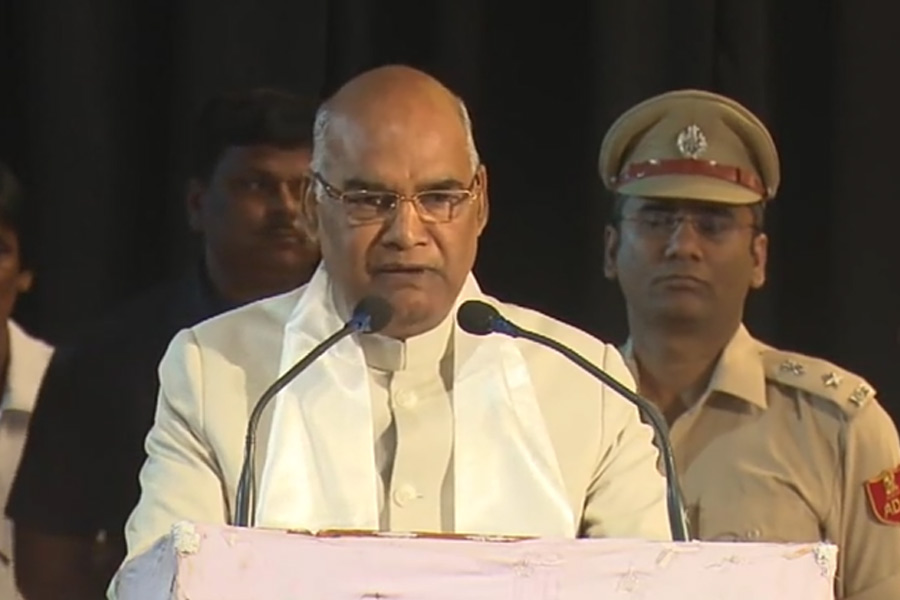There are ample signs that India is losing its grip over Sri Lanka, the island nation strategically important to Prime Minister Narendra Modi and his pet Neighbourhood-First policy. Sri Lanka is one of the biggest victims of China’s debt-trap diplomacy. Now that the presidential election is over and the Rajapaksas are back with a bang, it is good news for Xi Jinping’s China; and indeed, a bad omen for Modi’s India, as also Sri Lanka’s liberals, minorities, and the Tamils.
The recent election victory of Gotabaya Rajapaksa as the President of Sri Lanka gives a huge boost to China’s political interests in the country. Gotabaya is the younger brother of Mahinda Rajapaksa, who held the crucial defence portfolio during the Mahinda Rajapaksa-rule. Along with Mahinda, Gotabaya also played an instrumental role in suppressing the Tamil uprising that lasted 26 years, undoubtedly the bloodiest period in Lanka’s history.
The civil war ended in 2009, and the Rajapaksa brothers emerged as heroes for Sri Lanka’s Sinhalese Buddhist majority. Although their popularity dipped in the latter years, they were back in contention in the aftermath of Islamic State-inspired terror attacks on last Easter that killed more than 200 people.
From an Indian perspective, the pro-China attitude of the Rajapaksas is a cause for worry. Sri Lanka became part of the Belt Road Initiative (BRI), a meticulously-orchestrated investment-invasion project that aims to make China a colonial super power, under Rajapaksa. When he demitted office, Sri Lanka owed more money to China than it could pay back. As a result, the strategically important Hambantota Port now literally belongs to the Chinese; the Lankans were forced to hand over the Chinese-built port under a 99-year lease.
Post Chinese ‘infrastructure invasion’ under the aegis of Xi’s Belt Road Initiative, Sri Lanka has been in a tumultuous economic state, struggling to repay the debt.
The outgoing President Maithripala Sirisena was the close aide of Rajapaksa before switching over to the rival camp. Sirisena succeeded in cobbling together a government with a risky coalition, and Ranil Wickremesinghe became the Prime Minister. But the duo later fell out. Sirisena made a U-turn to shape his ambitious political career in Rajapaksa’s camp and adventurously went for a constitutional coup last October to replace Ranil Wickremesinghe with Rajapaksa. But the court came to the rescue and reinstated Wickremesinghe as the Prime Minister.
However, the chasm between the top leaders created a dysfunctional government with far-reaching consequences, as the terror attack on 21 April 2019 exemplified. Nine suicide bombings made the tourist nation come to a stand-still. More than 260 people died in churches and luxury hotels.
After a year of political instability, mired by crises over the functioning of the government, the Sri Lankans are banking on the Rajapaksas once again for stability, and indeed to protect themselves from future terror strikes. The most important election promise of Gotabaya was his commitment to keep Sri Lankans safe, and the election results prove it worked out well.
Concerns for India
There is little doubt that China would have a bigger role in the new set-up. Mahinda Rajapaksa has been nominated as Prime Minister. In Sri Lanka there is a two-term limit on presidency, and hence the move.
Gotabaya had once accused India of interfering in the politics of his country for a regime change and is known for his utterances against India in the past. Apart from tackling the brothers, Prime Minister Modi and his diplomat-turned Foreign Affairs minister S Jaishankar would need to work out some out-of-the-box ways to counter China in Sri Lanka. The Communist nation is the biggest investor in Sri Lanka, and that money is not at all risk-free.
India does understand that the massive Chinese investments in the island nation have everything to do with its India-policy. Gotabaya is visiting New Delhi in the last week of November, his first trip abroad as President, according to a Twitter statement from S Jaishankar on November 19.
The Indian External Affairs Minister probably has all the diplomatic credentials to rise to the challenge and that reflected in his quick Lankan visit to congratulate the new president earlier this week. A fresh roadmap for India-Sri Lanka ties would be charted out during Gotabaya’s visit. It might mark the beginning of the real Sri Lankan test for Team Modi.
(Image credit: @GotabayaR/@DrSJaishankar/Twitter)







